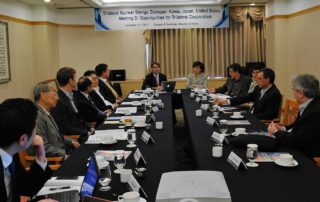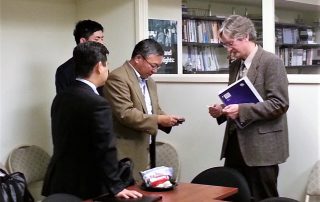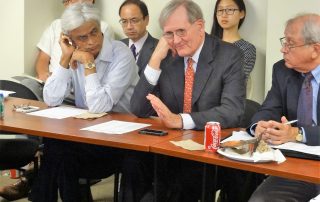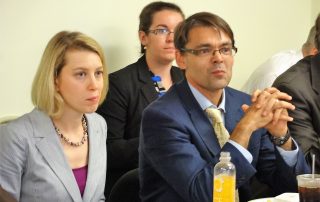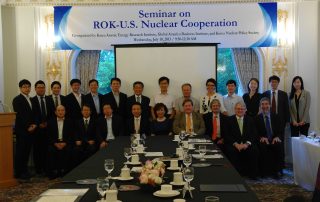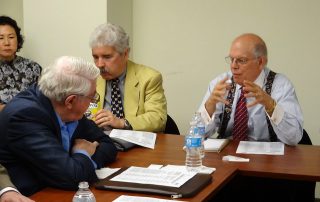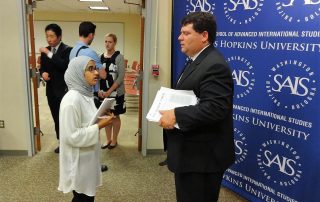At present, dialogue on nuclear technology in Washington, DC has tended to focus on issues related to nuclear materials security, nonproliferation, and arms control issues, rather than nuclear power. As a result, the policy community in Washington tends view nuclear power technologies with some skepticism. Given this environment, it is GABI’s commitment to promote, educate, and enhance the understanding of the vital role of nuclear power from the perspective of ensuring energy security, reliability and sustainability.
Workshop on Multilateral Commercial Enrichment
On January 23rd, 2014, GABI hosted a workshop in partnership with KAIST on "The Future of Commercial Uranium Enrichment and Multilateral Enrichment Facilities." The workshop featured Dr. Olli Heinonen of Harvard University, Dr. Charles Ferguson of the Federation of American Scientists, and Ms. Mari-Angeles Major Sosias of Energy and Minerals Consulting as the guest speakers.



